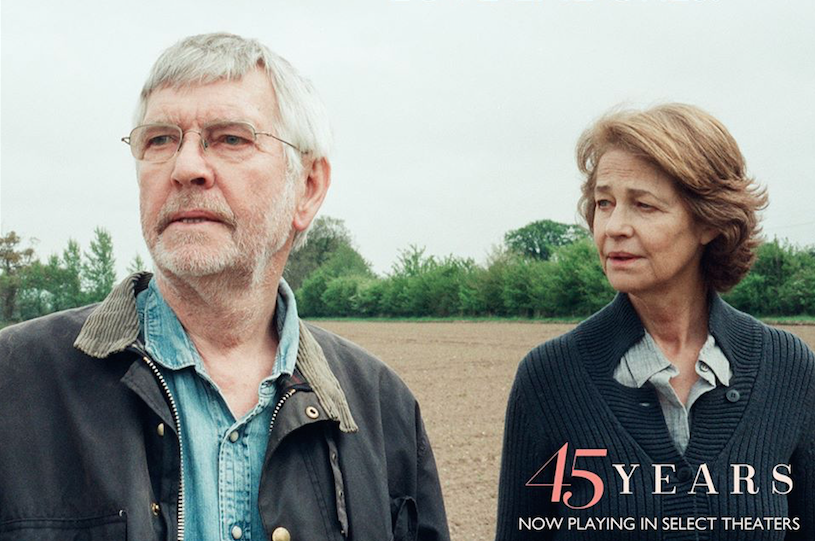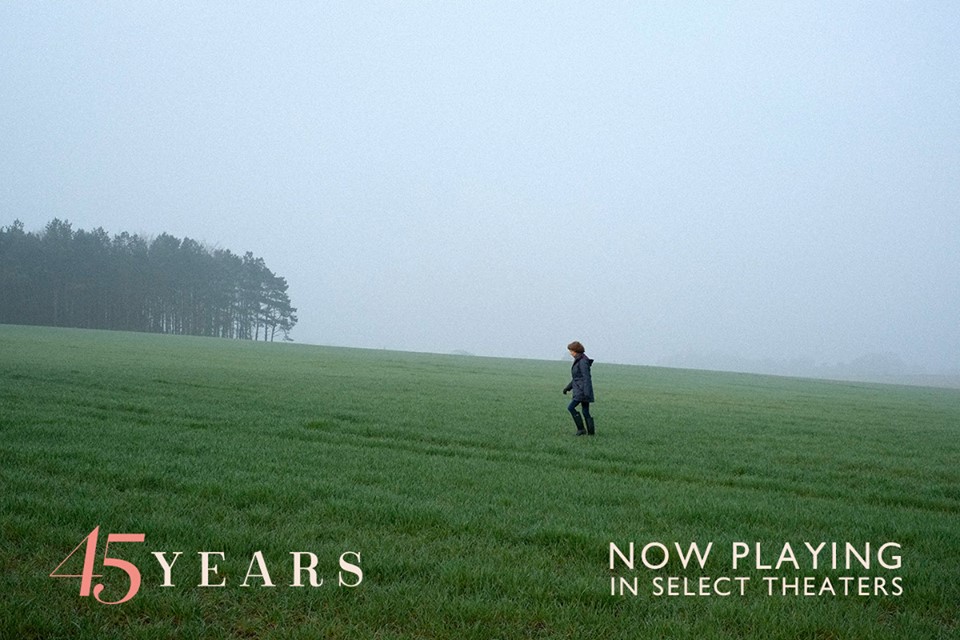HOLLYWOOD—Don’t be fooled by the tranquil scenery of the English countryside in the film. Don’t be fooled by the serene harmony, in which the couple spends their 45-year marriage in the story. “45 Years” is not one of those romantic stories that celebrate long-lasting love, but a shattering drama that explores deep into the essence of a marriage, a chilling thriller that exposes the most devastating truth about every relationship.
Charlotte Rampling and Tom Courtenay play the retired childless couple, Kate and Geoff, who have been married for 45 years. As their 45th anniversary of celebrating the years of happiness and love they’ve shared together emerges, an unexpected letter with information of Geoff’s long dead girlfriend Katya’s found body suddenly changes everything.
Unlike most movies with the traditional three-act structure, “45 Years” sets off its story almost right off the bat, cutting out the entire first act of the oftenly steady introductions. The letter arrives at the very beginning of the movie, while setting up Kate and Geoff’s relationship, simultaneously inciting the irreversible total change to their lives.
Not only has the body of Geoff’s first love been found, but also, this German girl remains the look of her 20s, the prettiest years. With Geoff remembering even more clearly every tiny detail of the days he spent with Katya, which he never really forgot for even a second, but somehow forgot to tell Kate. She is forced to realize that she is was never Geoff’s first choice, but at most, a second best choice he made in sort of a have-to situation.

A revelation like this, if not the most shocking one, must be the most painful one in Kate’s entire life.
Knowing that if she keeps questioning Geoff about his relationship with Katya would only worsen the pain, Kate does it anyway. To her, getting answers to those questions she already has answers to is like getting permission for herself, to have a good cry, letting out all the unbearable pain she’s bearing.
When she stops digging out more truths; when she starts to completely shut down anything related to the name Katya; and when she tells Geoff, “we’re going to have dinner, go to sleep and try again tomorrow morning” and Geoff gives a nod of approval, that’s the most devastating moment in the movie. The viewer can literally hear the cracking sound of their relationship breaking.
From now on, every sweet thing he says is for remedying the conveniently omitted secret; every happy moment they have, no matter how sincere and real, will always fall into this “have-to” situation. Yet still, neither of them can walk away. They’re both stuck in this marriage, 45 years and counting.
Why? Maybe, it’s that the years of devotion they have developed has created an unbreakable attachment to each other; or, that they still love each other, and only each other; or, to quote what Kate semi-casually said to Geoff when he refused to go to a long-planned luncheon, it’s that “you can’t just back out on things, even if you have reasons.”
At its first look, the logic doesn’t seem to make any sense. But when “Smoke Gets In Your Eyes” starts playing at their anniversary, when they’re dancing to the very song they danced to at their wedding 45 years ago as if nothing has happened and nothing has changed, you realize, oh, that logic makes perfect sense.
Because, when something’s wrong in the very beginning, and you cannot go back in time to correct it, then there’s no way anything that happens afterwards can ever be right. But even if none of it is right, you do all you can to make the best out of it. Putting it in another way, as Geoff’s big speech about choices: whatever choices you make when you’re young, good or bad, willingly or uncontrollably, believe it or not, you’re stuck with them for the rest of your life.
This is the paradox that “45 Years” displays. This is also the paradox that everyone has to deal with, sooner or later, knowingly or not. And perhaps, the helplessness that comes with all these paradoxical situations is what makes this film so painfully true to life, and therefore, so painfully beautiful, just like life.
Underneath the very well composed calmness either in the way the story is told by the brilliant Andrew Haigh, or the way the characters are portrayed by the sensational Rampling and Courtenay, we know that, deeply hidden in the film, there’s a deafeningly despairing scream we didn’t hear, or maybe we heard it, loud and clear.






